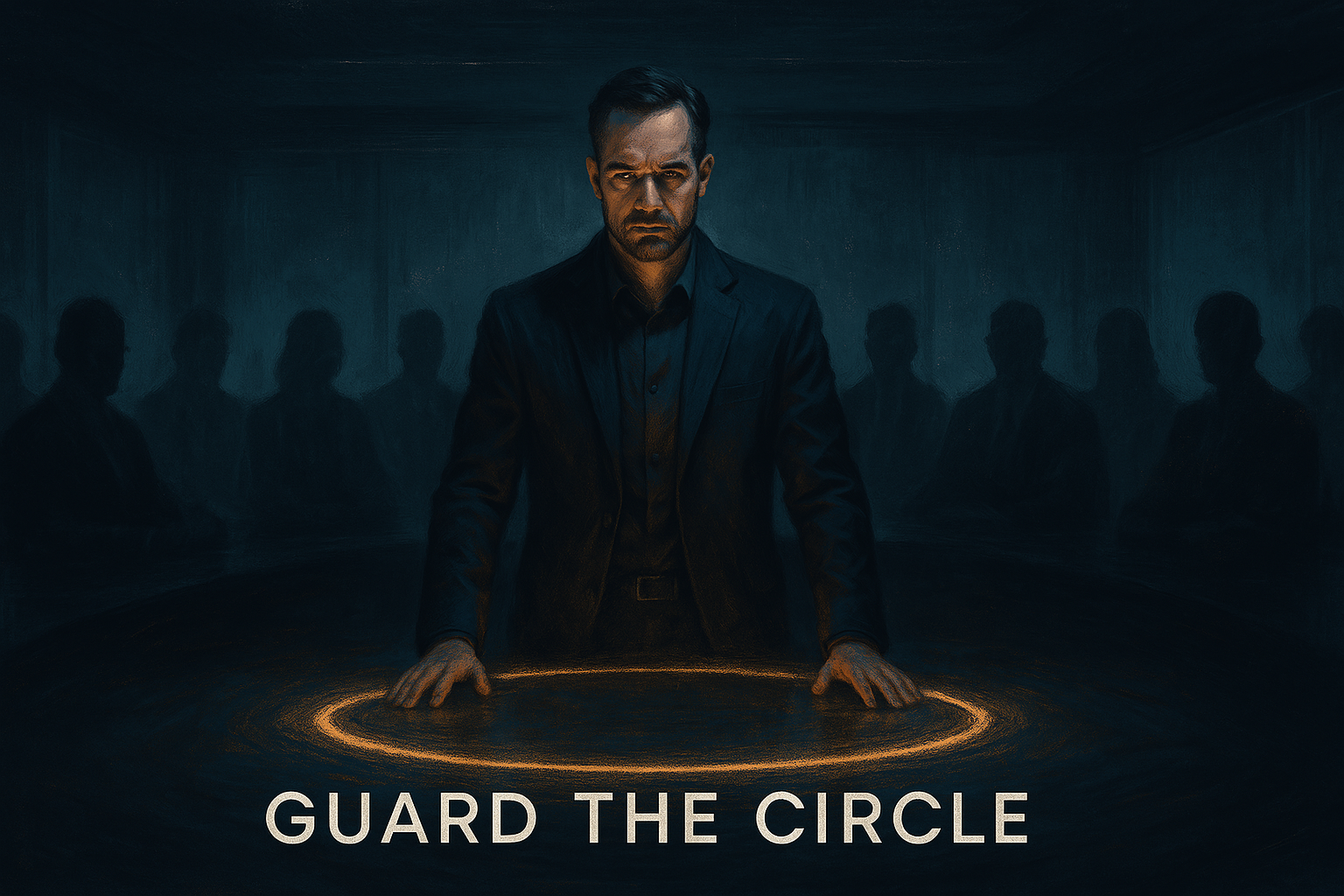
Guard the Circle: Why Leaders Must Invite Dissent to Stay Effective
By Derek Neighbors on April 14, 2025
The CEO leans in:
“We’re going all-in on AI.”
A few heads nod.
The CTO chimes in: “It’s the future.”
The head of product adds, “We’re behind if we don’t.”
A VP shrugs, then says what everyone else is thinking: “Game-changer.”
No one brings up the failed pilot from last quarter.
No one asks what “all-in” actually means.
No one says the infrastructure isn’t ready.
The room feels aligned.
It isn’t.
It’s just quiet.
Every leader has a circle.
The people whose opinions shape decisions. Your advisors, your lieutenants, the voices you trust most.
Sometimes they’re loud. More often, they’re silent.
If that circle only reinforces your ideas, you don’t have clarity—you have theater.
And when the stakes rise, you’ll find out too late:
They weren’t agreeing.
They were just done trying.
In fast-moving tech cultures, dissent feels like friction.
And friction feels like delay.
So we reward the fastest to nod. The ones who “get it.” The ones who won’t slow momentum with hard questions.
But speed without challenge isn’t execution. It’s a blind sprint toward the wrong thing.
Dissent isn’t disloyalty. It’s trust—expressed with backbone.
Not chaos. Not endless contrarianism.
Focused challenge that sharpens the mission.
A team that agrees too easily is already halfway to failure.
Protecting the agreeable over the insightful? That’s how you kill a good team—fast.
That nodding executive?
Still in the room.
Still agreeable.
Still watching as you steer into the wall.
And the teammate who raised the early concerns?
They’re already interviewing somewhere else.
The best ideas often come from the voices least expected to speak.
The junior engineer. The skeptical designer. The vendor who’s quietly seen it fail before.
If they don’t feel safe saying, “You might be wrong”—you’ve already lost something valuable:
Truth.
Guard your circle—not to filter out criticism, but to make sure truth gets in.
Your job isn’t to be protected.
It’s to be sharpened.
Start here:
Ask, “Who inside this room tells me when I’m wrong?”
Then ask, “What am I missing?”
And actually mean it.
Because your circle doesn’t exist to echo your instincts.
It exists to keep your vision from crashing like an untested algorithm.
Further Reading
- Radical Candor by Kim Scott
- The Fearless Organization by Amy C. Edmondson
- Think Again by Adam Grant
- Crucial Conversations by Kerry Patterson, et al.
- Thinking in Bets by Annie Duke